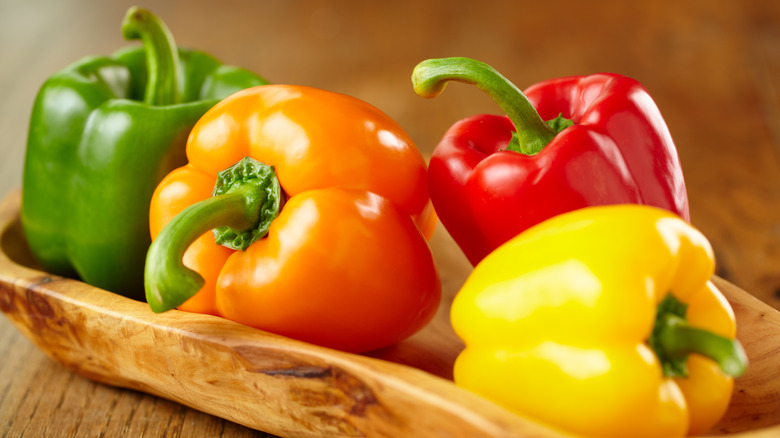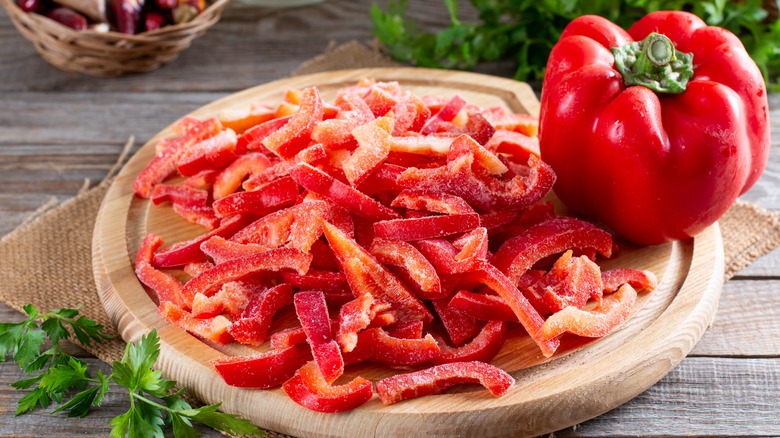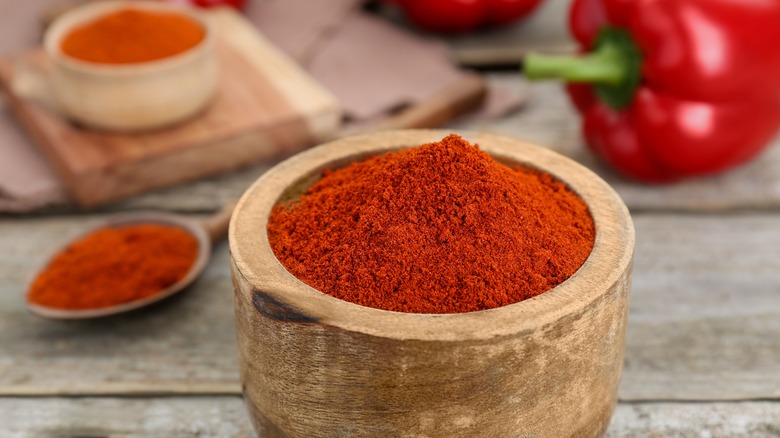What's The Best Way To Freeze Fresh Bell Peppers?
Bell peppers are a colorful and nutritious addition to just about any meal. But what do you do when your garden yields more than you can consume? Or perhaps you're conscious about the carbon footprint of food imports during off-seasons and can't go without eating peppers for an entire winter. Freezing these versatile vegetables is a brilliant solution to keeping that farm-fresh taste available year-round.
Whether you prefer to keep them whole or sliced, freezing your bell peppers is a great preservation method. When kept whole, frozen bell peppers reserve their versatility. However, pre-sliced peppers are more convenient because you can pull out preferred portions and throw them directly into dishes. With proper preparation and storage, frozen bell peppers will keep nearly perfect. Sure, you could just pop them into the ice box, but your veggies will stay tastier and last longer if you follow the methods described below.
You can freeze them whole or sliced
To freeze them whole, ensure your peppers are completely dry. Next, remove the stems and everything inside your pepper, leaving a hollowed-out bell. Individually wrap each pepper in plastic wrap and stash them in a zip-top plastic bag, squeezing out as much air as possible. A good way to get all the air out is to submerge the filled bag in a bath of warm water, sealing the top just before it goes under. Voila — your peppers are freezer-ready.
To freeze your peppers sliced, wash, dry, and remove the stems and seeds as you would if you were storing them whole. Then, cut them up in any manner you wish and dry them a second time with a paper towel. Lay them on parchment paper to freeze until they're solid enough to easily transfer into a sealed plastic bag, push out any excess air, and pop them in your freezer. If you want to go the extra mile, sliced peppers will last longer and take up less freezer space when vacuum-sealed!
Dehydrating bell peppers is another good way to preserve them
Short on freezer space after a particularly fruitful year in the garden? Don't fret! Dehydrating is another fantastic preservation method. Using a food dehydrator, dry your peppers until they're crisp. If you don't have a dehydrator, the simplest way to dry your bell peppers is in an oven. You can grind these dried gems in soups, stocks, or as a tantalizing seasoning. Just imagine having homemade bell pepper powder handy the next time you are looking to spice up a dish!
Preserving bell peppers doesn't just save you from the heartbreak of wasting food; it guarantees you a supply of garden-fresh flavor all year long. Properly frozen bell peppers, when cooked, are almost indistinguishable from their fresh counterparts. So the next time your garden blesses you with an abundance of bell peppers, or there's a particularly good sale at the supermarket, you'll know exactly what to do!


